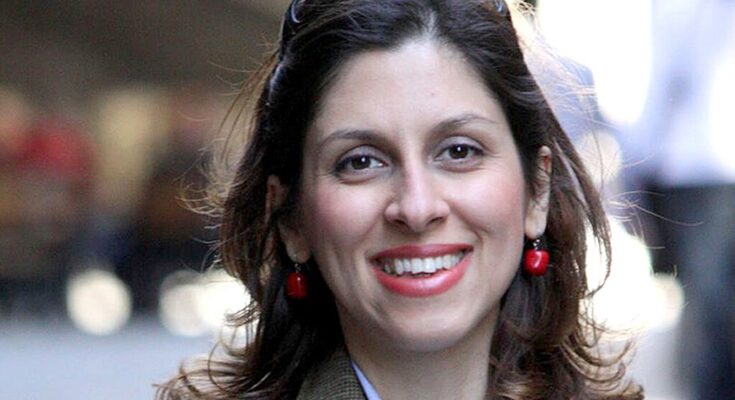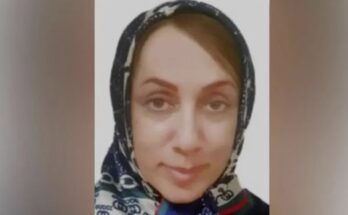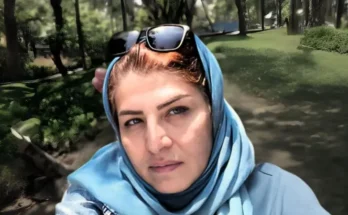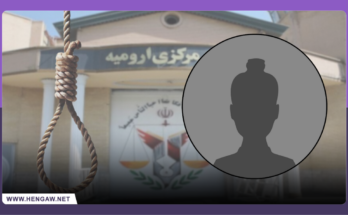Source: The New York Times
 By Megan Specia
By Megan Specia
The British-Iranian woman has been detained in Tehran for five years on charges of plotting to overthrow the government, accusations that her family and supporters say are baseless.
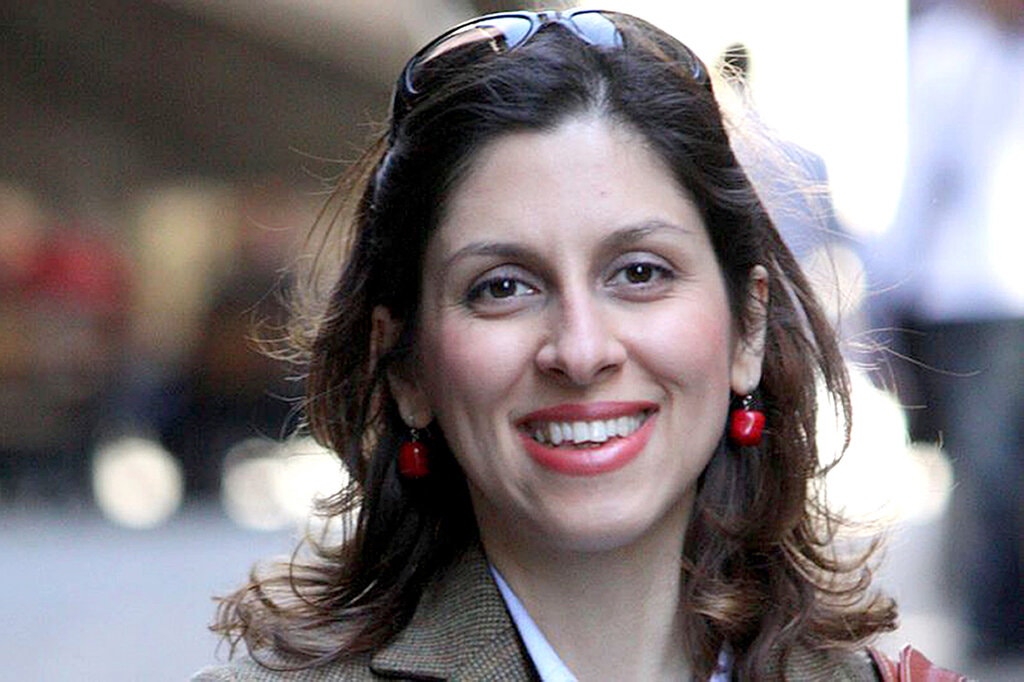
LONDON — Nazanin Zaghari-Ratcliffe, a British-Iranian woman who has been detained in Tehran since 2016, had her house arrest orders lifted as her sentence ended on Sunday, but her return to London remained uncertain as she faced new charges.
Over the past five years, Ms. Zaghari-Ratcliffe’s case has deepened a diplomatic rift between Britain and Iran and drawn international condemnation. But exactly what will happen next is still unclear — a common state of affairs during much of her time in custody, a period filled with raised expectations and dashed hopes for her family and supporters.
Ms. Zaghari-Ratcliffe was convicted of plotting to overthrow the Iranian government, and had been detained in her parents’ home in Tehran since last year. On Sunday afternoon, her lawyer Hojjat Kermani told the Iranian state news outlet IRNA that Ms. Zaghari-Ratcliffe had been freed from house arrest but ordered to appear in court next week on additional charges.
Her ankle monitor was removed, but she is still without her passport. Her husband, Richard Ratcliffe, speaking Sunday morning, said that she was “definitely pleased” to have the ankle tag off.
He said the decision was “not quite what we expected but it makes sense.”
“It solves the anomaly of the end of her sentence, but keeps her as leverage,” he said. “It feels to me a bit more like the games continue.”
Ms. Zaghari-Ratcliffe, 43, has denied the charges. Rights groups, Western officials and the United Nations have said that her case is one of several instances in which Iran has arbitrarily detained foreigners on baseless charges, many of them dual citizens like Ms. Zaghari-Ratcliffe.
Rights groups have accused Iran of trying to normalize what they call hostage diplomacy with the West by arresting people on trumped-up charges and then using them as political bargaining chips. Iran has denied those accusations and argued that its dealings with Iranian citizens like Ms. Zaghari-Ratcliffe are a domestic matter.
The British foreign secretary, Dominic Raab, said on Sunday that, while he welcomed the removal of Ms. Zaghari-Ratcliffe’s ankle tag, her “continued confinement is unacceptable.”
“She must be released permanently so she can return to her family in the U.K.,” Mr. Raab said in a statement. “We will continue to do all we can to achieve this.”
Earlier interactions with the Iranian authorities had left Ms. Zaghari-Ratcliffe’s family preparing for the worst before the Sunday deadline, including that the day could pass without her release. Mr. Ratcliffe said that he worried she would “drift past a point that was the obvious decision point, that was making us hope we would get her home.”
The ordeal began in April 2016, when Ms. Zaghari-Ratcliffe was stopped at Tehran’s airport after visiting family in Iran with her daughter, Gabriella.
Ms. Zaghari-Ratcliffe, who was working as a project manager for the Thomson Reuters Foundation, was tried and eventually jailed in the notorious Evin Prison in Tehran, where she spent time in solitary confinement and struggled with her mental and physical health.
The British government granted her diplomatic protection in 2019 in an attempt to win her freedom, and her transfer to house arrest last March as the coronavirus pandemic swept Iran raised hopes that she would be granted clemency and permission to return to Britain.
But in September, Iran filed fresh charges against her and scheduled a new trial, though that was eventually halted. The request for her to appear in court in Tehran this month is related to those charges, in which she is accused of spreading propaganda against the Iranian government, her lawyer said.
“It is, in my view, clearly a game of chess. She’s the pawn,” Mr. Ratcliffe said in an interview last week. “And it’s not the beginning of that game.”
Her husband had earlier expressed hope that she might be on a plane by Monday, but Sunday’s developments made that seem improbable.
“She’d been counting down to this date for 18 months,” he said. “There is something deeply unsettling about going through that threshold, because if this can happen, anything could.”
According to her husband, Iranian officials told Ms. Zaghari-Ratcliffe that her detention would end when Britain settled a four-decade-old debt of 400 million pounds, now worth about $550 million, related to a failed arms deal with the shah of Iran before his overthrow in 1979.
Ms. Zaghari-Ratcliffe was detained just before a battle over the debt was set to begin in a court in London. Iran has said that the debt was not a factor in her detainment.
Mr. Ratcliffe has been critical of what he describes as a wait-and-see approach by British officials over his wife’s status, but he said that he was more hopeful after meeting with Mr. Raab, the foreign secretary, last week.
A spokesman for the British Foreign Office said in a statement that Mr. Raab and the department remained “in close contact with Zaghari-Ratcliffe and her family, and continue to provide our support.” It criticized her detention “as diplomatic leverage.”
“We continue to do everything we can to secure the release of arbitrarily detained dual British nationals so that they can be reunited with their loved ones,” the statement read.
Kate Allen, the director of Amnesty International UK, called the developments on Sunday “bittersweet” and urged the British Foreign Office to take action.
“After all Nazanin’s been through, this feels like yet another example of the calculated cruelty of the Iranian authorities,” Ms. Allen said in a statement, adding that the possibility of a new trial was designed to delay Ms. Zaghari-Ratcliffe’s release and exert pressure.
“This won’t be over until Nazanin has her passport and is on a flight heading home to the U.K.,” Ms. Allen said.
For now, Ms. Zaghari-Ratcliffe and her family are in a holding pattern.
“It’s perpetual ambiguity,” Mr. Ratcliffe said, citing the constant wondering about “maybe she’ll be home, maybe it’ll get worse, maybe it will stay the same.”

